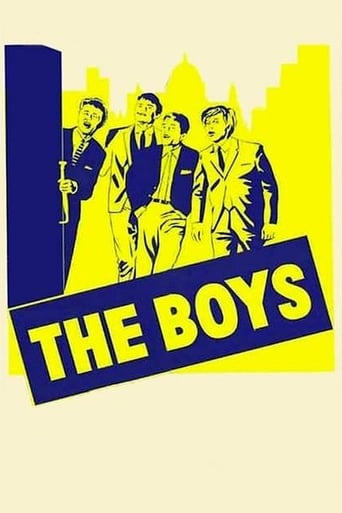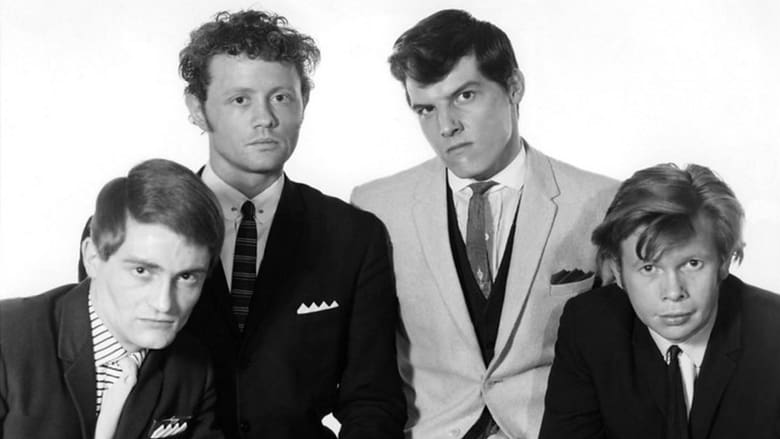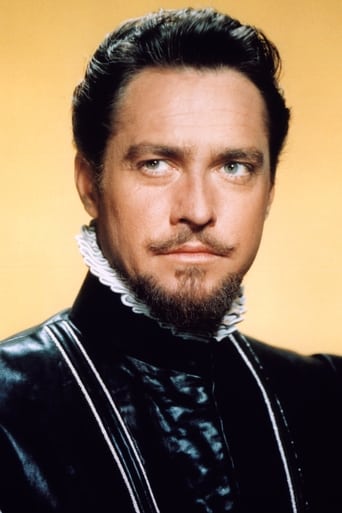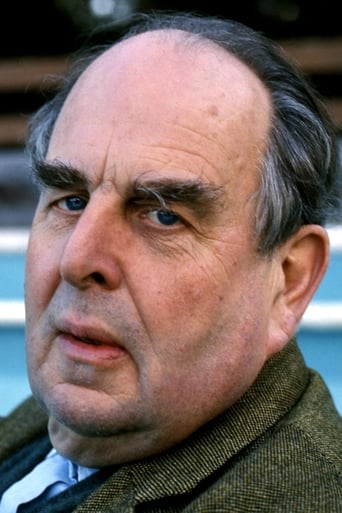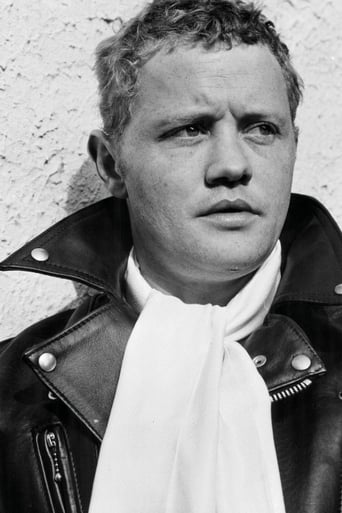The Boys (1962)
A night watchman at a garage is found murdered, and four teddy boys are put on trial for the crime. Witnesses and suspects give differing accounts of the lead-up to the crime, and the truth emerges.
Watch Trailer
Cast
Reviews
Very very predictable, including the post credit scene !!!
Save your money for something good and enjoyable
Great movie! If you want to be entertained and have a few good laughs, see this movie. The music is also very good,
Each character in this movie — down to the smallest one — is an individual rather than a type, prone to spontaneous changes of mood and sometimes amusing outbursts of pettiness or ill humor.
I came across this gem recently, having not seen it before. A great stellar cast of experience balances nicely with the youth on trial. Good story, and captivating. Recommended!
Four young working-class lads from the East End of London are accused of murdering a night watchman in the course of a robbery. The film is a mixture of courtroom drama and kitchen sink realism; scenes set in the courtroom are intercut with flashbacks showing the boys' home life and the events of the night leading up to the fatal stabbing. We first see the prosecution evidence and scenes showing events from the viewpoint of the prosecution witnesses. After the prosecution have finished presenting their case, however, the boys get the chance to tell their own story. Shots of them giving evidence in the witness box alternate with scenes showing events from their perspective. As might be expected, the two versions are very different from one another. The prosecution witnesses, representatives of the older generation, all give a one-sided account unfavourable to the young men; their defending barrister tries hard to discredit the evidence of these witnesses and to show that they are ill-disposed towards teenagers. The boys' own evidence suggests that they are guilty of nothing more than youthful high spirits, or at most petty rowdyism, which the older witnesses have misinterpreted as evidence of a violent criminal nature.Given this theme of age versus youth (a common theme in the sixties) it is perhaps unfortunate that, although the boys are supposed to be teenagers, the actors playing them were all in their late twenties. Indeed, Dudley Sutton who played the ringleader, Stan Coulter, was actually a year older than Roy Kinnear who played one of the supposedly older prosecution witnesses.The social realist aspects of the film are well done, giving a vivid picture of the era. (The term "kitchen sink" seems particularly apt in this case, as most of the scenes set in the boys' homes do indeed take place in the kitchen, with the sink very much in evidence, emphasising that for working-class people the kitchen often also served as a dining room and living room). This is not the middle-class "swinging London" that we see in films from a slightly later period such as "Darling" or "Blow-Up", but a London that seems to come straight from the pages of a Colin MacInnes novel, a world of Teddy Boys, coffee bars and billiard halls. To a modern audience it may seem odd that the boys' style of dress should have aroused so much hostility among their elders, as by today's standards they are all very smartly dressed, but in the fifties and early sixties this sort of dandyish appearance was regarded as the hallmark of the violent Teddy Boy movement.The courtroom aspects of the film could also have given rise to an interesting drama, an illustration of the idea that there are always two sides to every story and a plea for greater tolerance by the older generation of the ways of the young. Unfortunately, this side of the film did not work for me. There are two main problems. One is that the prosecution simply do not have a case in the first place. There are no eye-witnesses to the stabbing, no confessions, no forensic evidence, no statements by police investigators explaining why these four boys are regarded as the prime suspects. The only evidence the prosecution call is from members of the public who saw the boys on earlier occasions during the fateful evening, and this amounts to little more than "Those lads struck me as a gang of ruffians". Such evidence would be quite inadmissible under English law; even if it were admissible it would not by itself constitute the "proof beyond reasonable doubt" needed for a conviction. Evidence of a propensity to dress like a Teddy Boy, to engage in horseplay or to commit minor vandalism is not evidence of a propensity to commit murder. Robert Morley gives a characteristically florid performance as Montgomery, Counsel for the defence, but this struck me as a layman's idea of a criminal lawyer, in love with his own rhetoric and more concerned with scoring debating points than with the law. In real life he would doubtless have tried to persuade the Judge to disallow the prosecution evidence and to get the case struck out on a submission of no case to answer.The other problem with this film is that it abruptly changes direction near the end, a reversal of direction which undermines the message about not judging by appearances and being tolerant towards the young. We have been led to think that the boys are innocent, that the case against them is based on nothing more than prejudice, and that the film will end in their acquittal. Then, unexpectedly, Coulter breaks down under cross-examination and admits to the crime. It appears that he and two of his companions are indeed guilty (the fourth is acquitted). The film suddenly becomes an "issue" movie about the capital punishment as Coulter is sentenced to death. We are clearly intended to regard this as an unjust sentence, but Coulter is undoubtedly guilty of having struck the fatal blow; the two others (who cannot receive the death penalty, being under eighteen) are guilty only on a legal technicality. As anti-death-penalty propaganda the film is not very effective; it might have had more impact if the situation had been reversed and Coulter had been sentenced to hang for a crime actually committed by a younger accomplice. (As another reviewer has pointed out, this was the in position the real-life Bentley case).This could have been a gripping courtroom thriller, but was too clumsily handled. At most it is an interesting, but slight, period piece from the early sixties. 5/10
The writings of Charles Dickens are known, apart from their obvious entertainment value, as chronicles of the times in which he lived highlighted by over-the-top characterizations and true-to-life environments. So it is with this movie.I won't dwell on the plot - suffice it to say that it's presentation is sufficiently original to hold the viewer virtually spellbound in an emotional roller-coaster (big dipper to you Brits!) Rather, the value of this movie is the tantalizing peek it affords us to a Great Britain in general, and a London in particular, immediately pre-Beatles.This movie is a "must see" for those who wish to visit or re-live the London of 1962! It's a gritty, no holds barred look at the time between Harold (You-never-had-it-so-good) Macmillan's nineteen fifties and the Swinging Sixties.
Four working class boys are accused of stabbing a night watchman at a garage for the money in the cashbox. It starts slowly as a courtroom drama, with lawyers and witnesses apparently attempting feeble comic turns. Where's the director? you wonder. Surely lawyers don't behave like this. The only good bits in this preamble are the flashbacks to the witnesses' encounters with the boys.Then Robert Morley as the boys' defence lawyer visits them in the cells and zap! the film comes alive. Perhaps because Morley's in control? He was a great actor, not to mention writer and director.The guys playing the boys are excellent too. They slouch in their chairs while Morley lays into them for not giving him anything to go on. He tells them how he was always taunted at school for being fat and gains their confidence.Then the boys go into the witness stand one by one and tell the story from their point of view. Yes - it's the Rashomon plot. We see their poor homes and parents, some antagonistic, some sympathetic. They tell the story of their attempt to have fun 'up west' in London's entertainment district, foiled by their lack of cash. See it if you want to know if they're guilty!There are some great British character actors including the lovely Betty Marsden, but the prosecuting lawyer is miscast - he looks about as dangerous as a kitten. Roy Kinnear is an embarrassment, but he's given the impossible task of trying to convey a witness with concealed and unspecified 'mental trouble' - something the British public were even more ignorant about back then.Dudley Sutton stands out as the gang leader. I believe he became an alcoholic and recovered and since the late 70s has popped up on television playing charming old buffers. xxxxxxx
